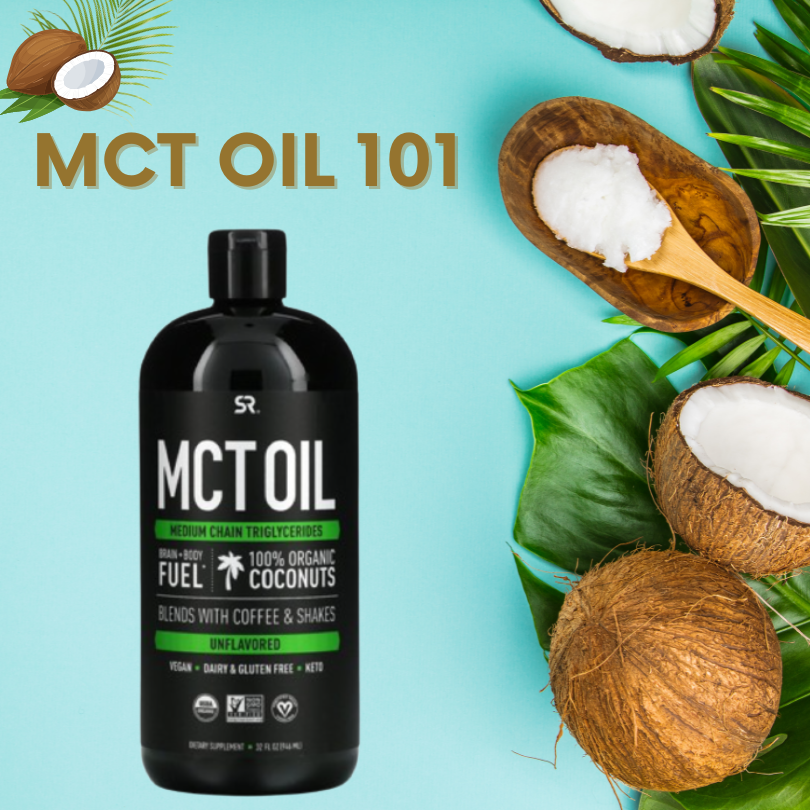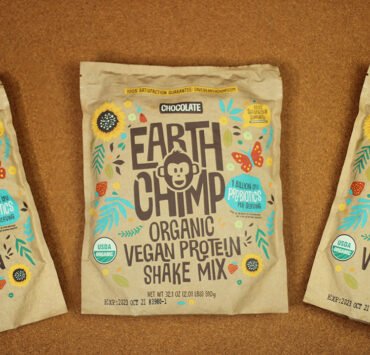MCT Oil 101: What it is, How to Use it, and its Potential Health Benefits

MCT oil has gained significant popularity in recent years due to its potential health benefits and versatility. This comprehensive guide will delve into the world of MCT oil, exploring its definition, functionality, and various applications. Whether you are new to MCT oil or looking to expand your knowledge, we will provide you with valuable insights and practical tips.
Introduction
MCT oil, which stands for Medium-Chain Triglyceride oil, is a type of fat derived from coconut oil or palm kernel oil. It consists of medium-chain fatty acids known for their unique metabolic properties. The health and wellness industry has embraced MCT oil for its ability to provide a quick and efficient source of energy.
What is MCT Oil?
MCT oil undergoes a process called fractionation to extract medium-chain fatty acids from the original oil source. The result is a concentrated oil primarily containing caprylic acid (C8) and capric acid (C10), with a smaller amount of lauric acid (C12). These fatty acids are referred to as medium-chain due to their carbon chain length.
How Does MCT Oil Work?
When you consume MCT oil, your liver rapidly absorbs it and metabolizes it into ketones. Ketones are molecules that serve as an alternative fuel source for the body, particularly for the brain. This metabolic pathway allows for quick energy production without the need for extensive breakdown processes.
One significant benefit of MCT oil is its potential to induce a state of ketosis, even in individuals not following a strict ketogenic diet. Ketosis is a metabolic state where the body primarily relies on fat for fuel instead of carbohydrates. This can be particularly useful for individuals seeking to enhance their cognitive function, manage their weight, or boost their overall energy levels.
Benefits of MCT Oil
Weight Management
Research suggests that MCT oil may support weight management efforts. Its unique metabolic properties increase feelings of fullness and help reduce calorie intake, ultimately promoting a healthy body composition.
Enhanced Cognitive Function
The brain relies heavily on a constant supply of energy. MCT oil provides a readily available source of ketones that the brain can efficiently utilize. This has led to suggestions that MCT oil may improve cognitive function, enhance mental clarity, and support overall brain health.
Increased Energy Levels
If you often feel fatigued or lack energy, incorporating MCT oil into your diet may help. The rapid conversion of MCT oil into ketones provides a quick and sustained energy boost, making it an ideal choice for athletes, individuals on a low-carbohydrate diet, or those needing an extra pick-me-up during the day.
Improved Exercise Performance
MCT oil has been shown to have a positive impact on exercise performance. By providing a readily available energy source, it can help improve endurance, delay the onset of fatigue, and enhance overall athletic performance. Athletes and fitness enthusiasts can benefit from consuming MCT oil as part of their pre-workout or intra-workout routine.
Gut Health Support
Certain fatty acids found in MCT oil have antimicrobial properties that can help maintain a healthy balance of gut bacteria. This can contribute to improved digestion, reduced inflammation in the gut, and enhanced overall gut health. Incorporating MCT oil into your diet may be particularly beneficial for individuals with digestive disorders or those looking to optimize their gut microbiome.
How to Use MCT Oil
Recommended Dosage
It is generally recommended to start with a small amount of MCT oil, such as 1 teaspoon, and gradually increase the dosage over time. Most individuals find that a daily intake of 1 to 3 tablespoons of MCT oil is sufficient to experience the desired benefits.
Incorporating MCT Oil into Your Diet
MCT oil can be easily incorporated into your daily diet. You can add it to your morning coffee or tea for an energy boost, drizzle it over salads as a dressing, or use it as a replacement for other oils in cooking and baking. Its neutral flavor makes it a versatile addition to various dishes and recipes.
Cooking and Baking with MCT Oil
MCT oil has a relatively high smoke point, making it suitable for most cooking methods, including sautéing, stir-frying, and baking. However, it is best to avoid deep-frying with MCT oil due to its lower smoke point than some other oils specifically designed for high-temperature cooking.
Adding MCT Oil to Beverages
MCT oil can also be added to beverages for a quick and convenient energy boost. You can blend it into smoothies, protein shakes, or even homemade salad dressings. Its ability to enhance the creaminess and frothiness of drinks makes it a popular choice among those following a ketogenic or low-carbohydrate lifestyle.
Potential Side Effects of MCT Oil
While MCT oil is generally considered safe for consumption, it may cause some side effects, particularly when consumed in large amounts or by individuals with specific health conditions. These side effects can include digestive issues such as diarrhea, stomach cramps, and nausea. It is recommended to start with a small dosage and gradually increase it to allow your body to adjust.
Some individuals may also experience allergic reactions to MCT oil. If you have a known allergy to coconut or palm kernel oil, it is advisable to consult with a healthcare professional before incorporating MCT oil into your diet.
Furthermore, MCT oil may have an impact on cholesterol levels. While it has been shown to increase levels of HDL (“good”) cholesterol, it may also elevate levels of LDL (“bad”) cholesterol in some individuals. If you have existing cholesterol issues, it is important to discuss the use of MCT oil with your healthcare provider.
Choosing the Right MCT Oil
When selecting MCT oil, consider factors such as the source, quality, and certifications. Look for MCT oils derived from organic and sustainably sourced coconuts or palm kernel oil. Organic certification ensures the oil is free from pesticides and other harmful substances.
Additionally, pay attention to the ratio of medium-chain fatty acids in the oil. Higher percentages of C8 (caprylic acid) and C10 (capric acid) are considered more beneficial and readily metabolized by the body.
Certifications such as Non-GMO Project Verified and third-party testing for purity and quality can provide added confidence in the product you choose. Reading customer reviews and seeking recommendations from trusted sources can further guide you in making an informed decision.
Why To Buy MCT Oil
Frequently Asked Questions (FAQs)
1. Can I consume MCT oil if I’m on a ketogenic diet?
Yes, MCT oil is highly suitable for a ketogenic diet. It provides a quick source of energy and helps maintain a state of ketosis. Adding MCT oil to your diet can support your low-carbohydrate lifestyle and enhance the benefits of ketosis.
2. How quickly does MCT oil take effect?
The effects of MCT oil can vary from person to person. Generally, you can expect to feel the effects within 30 minutes to an hour after consuming MCT oil. However, individual metabolism and other factors may influence the timing and intensity of the effects.
3. Can MCT oil assist with weight loss?
MCT oil has been studied for its potential benefits in weight management. Its ability to increase feelings of fullness and reduce calorie intake can support weight loss efforts. However, it is important to remember that MCT oil is not a magic solution for weight loss and should be used in conjunction with a balanced diet and regular exercise.
4. Is there a specific time of day to take MCT oil?
There is no specific time of day that is considered ideal for consuming MCT oil. It can be taken at any time that fits your routine and preferences. Some individuals prefer to take it in the morning to kickstart their day, while others incorporate it into their pre-workout routine for an energy boost.
5. Can I use MCT oil as a substitute for other oils in cooking?
Yes, MCT oil can be used as a substitute for other oils in cooking and baking. Its high smoke point makes it suitable for various cooking methods. However, it is important to note that MCT oil has a neutral flavor, so it may not impart the same taste as other oils in certain dishes. Experimentation and personal preference will guide you in finding the best uses for MCT oil in your culinary adventures.
Conclusion
MCT oil offers a wide range of potential health benefits, from supporting weight management to improving cognitive function and enhancing energy levels. With its versatility and ease of incorporation into various diets and lifestyles, MCT oil has become a popular choice for individuals seeking a convenient and efficient source of energy.
When using MCT oil, it is important to start with a small dosage and gradually increase it to allow your body to adjust. Additionally, consider the quality and sourcing of the oil to ensure you are purchasing a reputable product.
Whether you’re looking to enhance your athletic performance, optimize your brain function, or simply add a nutritious and delicious oil to your daily routine, MCT oil may be the perfect choice for you.




